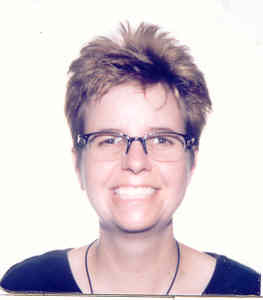What I learned from Rio Paralympics

In this week’s issue of the Ewha Voice, there is an article about the benefits of participation in sports, especially for women. Engaging in sport activities can lead to an increase in confidence, and subsequently provides not only health benefits but in the long term leads to greater personal empowerment and the demolition of negative stereotypes about women. Such has certainly been the case in my own life.
Although the importance of academic achievement was emphasized in my home growing up, it was always counterbalanced with the notion that being healthy (physically, psychologically and socially) and balanced in life was equally important. Thus, the majority of my free time as a child was spent outdoors?running, playing, inventing games with neighborhood children, hiking, biking, or just being in nature with friends and family. This had a tremendously positive effect on my demeanor and perspective; specifically, life is to be enjoyed.
I participated in many individual as well as team sports, basketball being my favorite, followed closely by softball/baseball, volleyball, fieldhockey and tennis, among others. I even have had a stint as the quarterback on our high school women’s intramural (American) football team?this was no tag football, but full-on tackle, with no protective gear. I will readily admit that despite my love of sports, I never became a master of any, and sadly, I wasn’t always the most sportsman-like player; I was fierce and competitive. But I also learned many great lessons from these games: teamwork, strategic thinking, the “thrill of victory, the agony of defeat,” and the advantages of a strong, nimble body.
Being surrounded by like-minded, physically active women helped solidify my fundamental belief that women are capable of accomplishing anything they choose to do. This lesson was recently reiterated as I had the opportunity to attend the 2016 Paralympic Games in Rio de Janiero. As a member of Team USA Canoe/Kayak, a dear friend, Ann Yoshida, was among the first, trailblazing athletes to compete in the inaugural event of canoe sprint racing at the Paralympics. Remarkably, Team USA had one female athlete in each of the three classification of canoe paddling, which attests to the accomplishments of women para-athletes.
To say that interacting with, assisting, and paddling with these elite athletes was inspirational and motivating is an understatement. These are women that because of a genetic birth defect or accident are considered by some as “disabled,” but each of these women has greater physical strength, mental fortitude, and perseverance than the majority of people I know. To be amongst athletes from 123 countries as they competed in 23 different sports reminded me of the power and the benefit of athleticism?it quite literally changes lives for the better. It also reminds me that it is a worthwhile pursuit to continue my daily routine of hiking, biking, and/or cardiovascular/strength workouts.
Regrettably, such does not seem to be the same for most Ewha students; I was dismayed to learn through this week’s article on women and sports that many physical activities are on the decline at Ewha, even to the point of the cancellation of several sporting events. Physical activity should not be secondary to academics; participation in sports, or physical movement of any kind builds stamina, has innumerable health benefits, increases mental acumen, and provides a reprieve from otherwise tedious tasks. So for a moment each day, put down your cell phones, close your books, turn off the television and get outside and enjoy the bounties of nature and benefits of participation in sport activities!
Professor Hannah Jun received Ph.D at Columbia University in Ethnomusicology

